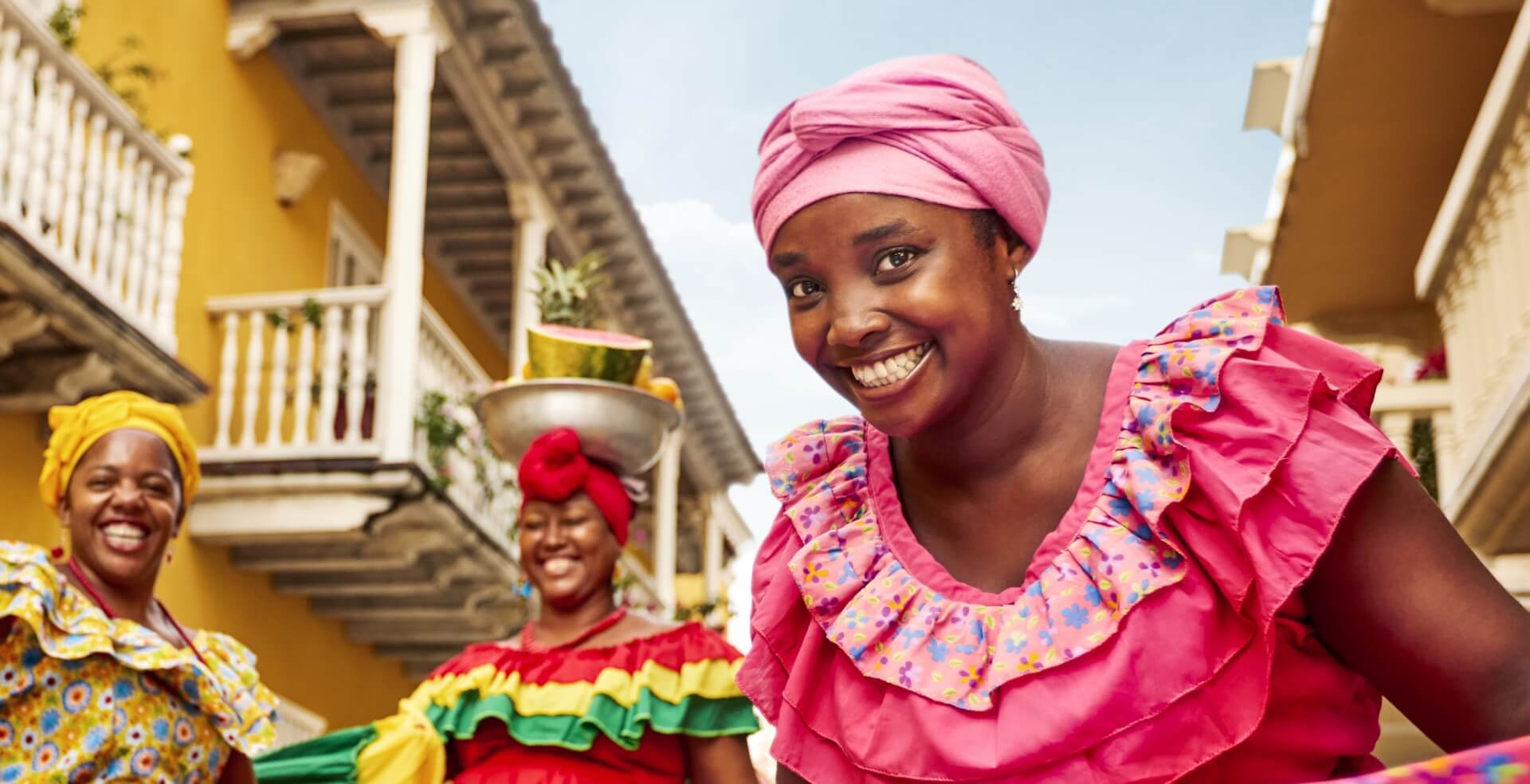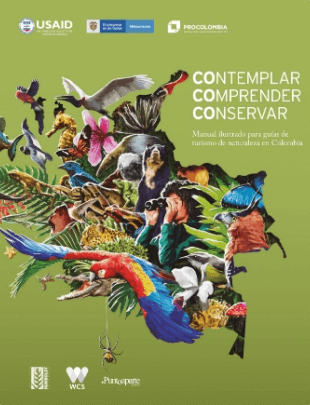Colombia is well known as the second most biodiverse country on the planet, according to the Biodiversity Information System and the Global Biodiversity Information Facility, but it’s also a tropical country with several different climates. Wondering what the secret behind the unique Colombia weather is?
Let’s dive deeper and discover the amazing landscapes and biodiversity coursing throughout the country.
Weather in Colombia: all climates, all year round
The secret behind the climate in Colombia lies in its geography. For starters, the country is surrounded by three huge mountains, which split it into five natural regions: Andes, Pacific, Caribbean, Amazon and the Llanos (plains). All of them offer an impressive range of climates and landscapes at varying altitudes.
But how can a tropical country have so many different climates? Colombian climate will vary depending on the altitudes of the different regions.
The varying altitudes define the temperature of an area according to its height above the sea level. Thus, geography plays the strongest role in determining the climate in Colombia.
Which types of altitudes define the climate in Colombia?
There are four types of climates that will vary according to the altitude: warm, temperate, cold and snow. These define the weather in Bogota, the weather in Medellin, the weather in Cartagena, the weather in Cali and the Santa Marta weather. Now, let’s discover the differences in the types of the weather in Colombia depending on the cities and their altitudes.
Feel the Colombia climate summer in Cartagena de Indias
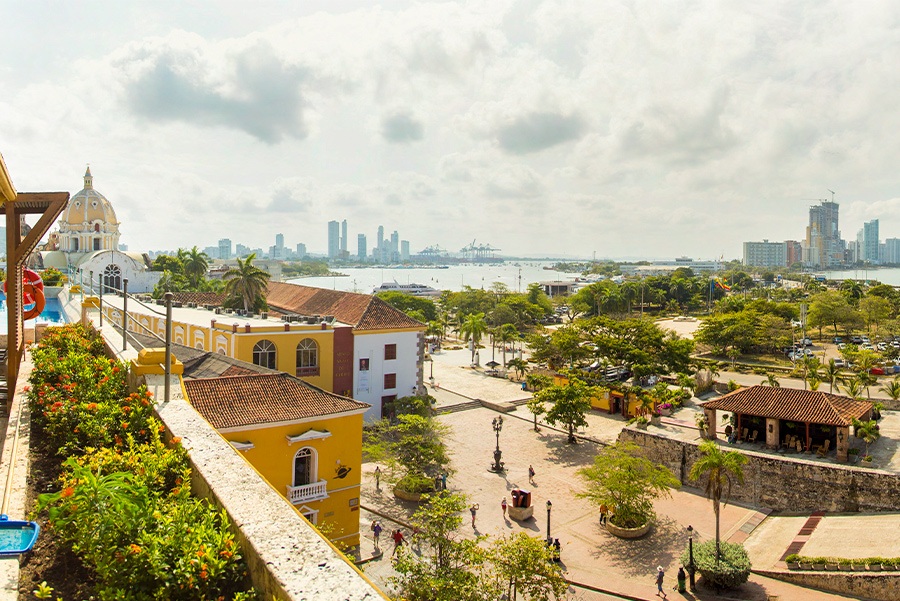
Cartagena de Indias, one of the best places to feel the summer in Colombia.
Colombia is a generally warm country. Almost 80% of its territory lies below 1,000 m above sea level in a wide variety of Colombian regions, with an average temperature of 27°C (80,6 °F).
Cartagena de Indias, one of Colombia’s crown jewels, is also known as “The Heroic City”. Here, guarded by 13 km of stone walls and precious colonial-style houses, you’ll truly feel the tropical heat of the country.
You’ll find the same sultry climate in Colombian Caribbean, Pacific and some Andes cities such as Santa Marta, San Andrés, Barranquilla, Cali and Bucaramanga.
Soak up the sun and spend your summer vacation on Colombia’s beaches.
How is the weather in Medellin, ‘The City of Eternal Spring’?
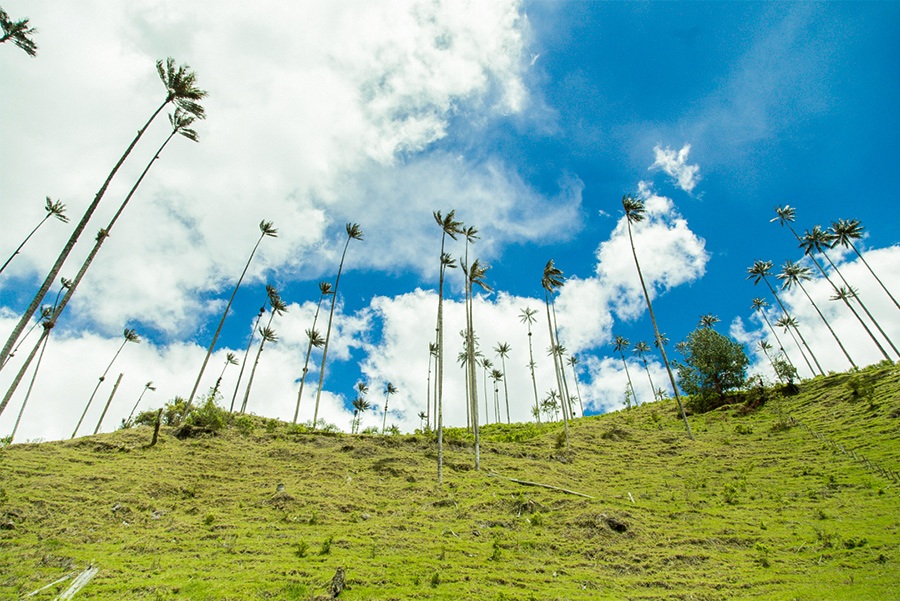
Feel the spring in Valle del Cocora, Colombia.
In Medellin and the Coffee Cultural Landscape, the temperature begins to drop at 1,000 m above sea level to an average of 22°C (71,6 °F). In the main cities with this type of weather in Colombia such as Medellin, located in a bowl in the Andes mountains, beautiful flowers bloom, that is why it is known by its Flower Festival, the city’s biggest cultural event of the year.
Not only is Medellin an innovative urban space, in 2013 was named ‘Innovative City of the Year’ by the Wall Street Journal, it’s also home to some parks and gardens such as Parque Arvi. Stunning towns are a short distances away, so you can visit some beautiful little towns like Guatape, Santa Fe de Antioquia and Jardin.
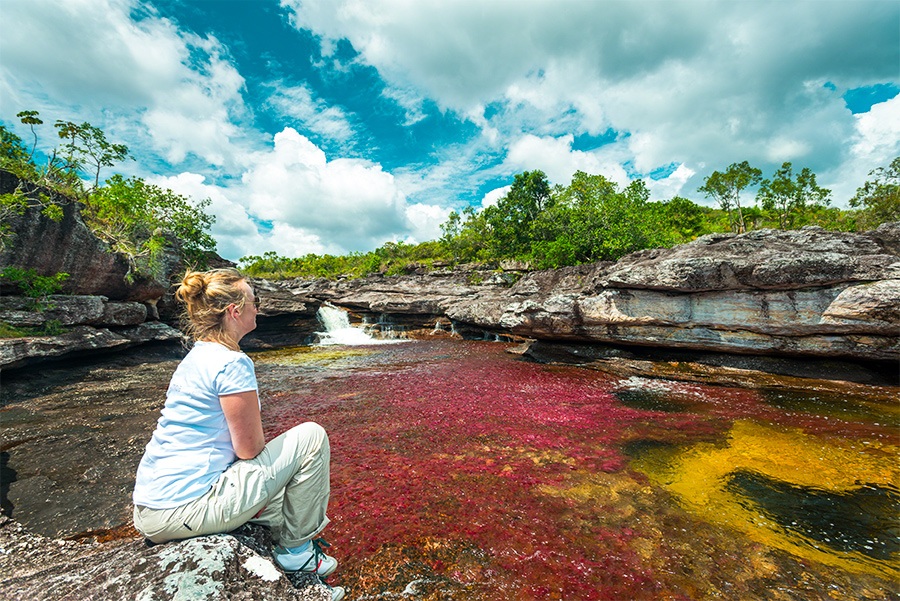
Caño Cristales, one of the best places to feel the spring in Colombia.
Caño Cristales in La Macarena is also a prime example, a picturesque landscape where the rainbow quite literally flows. This five-colored river changes its hues throughout the year, providing an amazing natural showcase unlike anything else on Earth.
Autumn Colombia weather characterizes the capital of the country: Bogota
At 2,000 m above sea level and higher, the weather in Bogota feels like in a state of perpetual autumn, with an average temperature of 14°C (57,2 °F). Bogota, Colombia’s capital city, is the perfect example: a city that attracts people from across the country and offers a variety of cultural places, unique experiences, colonial architecture and traditional meals.
Discover the Bogota Region and the High Plains of Cundinamarca and Boyacá.
Find the weather in Colombia winter at the Sierra Nevada de Santa Marta
At the height of the Andean Range, over 4,500 m above sea level, majestic peaks rise high enough above the country’s tropical heat to be perpetually covered in snow. Colombia has six snow-capped mountains, three of which are volcanoes. These include the nevados of Santa Isabel, Tolima, Ruiz, Huila, Cocuy and the Sierra Nevada de Santa Marta.
Discover: The tropical fruits of Colombia, a reflection of the diversity of its regions
Feel all the seasons here
As a result, the year round climate in Colombia never changes-- isn’t it amazing? We are one of the lucky few countries in the world that get to enjoy this privilege. The weather in Colombia only has two seasons: a dry season (from December to January and July to August) and a cloudy season (from April to May and October to November), when usually it’s sunny in the morning and cloudy/rainy in the afternoon.
Varying elevations determine the weather in Colombia, as well as its biodiversity. As a foreign visitor, you will be able to enjoy humpback whale sightings in Colombia, discover amazing places to go birdwatching and even unwind on exquisite beaches. Afterwards, you could visit glacier regions, go inside the Amazon tropical rainforest or visit moorlands, such as the Chingaza National Natural Park.
In effect, Colombia is unique. Come visit our country and the wide range of destinations. We just gave you a few examples, but it’s up to you to choose your destination according to the weather in Colombia that best suits you. Of course, you’re not alone, we can help you find the perfect destination here.







